#its kind of sad the premise reminds me a little bit of stars wars for some weird reason
Conversation
Vlad: I've come to offer you some friendly advice.
Saint Germain: Vlad, I don't want your advice.
Vlad:
Vlad: Well then, consider it unfriendly advice.
#ikevamp#ikemen vampire#ikevamp vlad#ikevamp comte#ikevamp saint germain#mild comte rt spoilers#okay listen i made this post#about three days before le comte's rt came out fully kidding#AND NOW I GENUINELY CAN'T DEAL WITH THE FACT THAT THIS IS EXACTLY WHAT HAPPENED.#vlad: :(((((((((( my bestie is sad#also vlad: i know just the thing to cheer him up! world domination!#comte: wh#comte: VLAD I DONT WANT THIS#vlad: :(#vlad: >:(#vlad: thought you were fam.......turns out you're just weak#like unironically im laughing at how accurate this post is#comte: i would like to maintain human freedom and dignity#vlad: i cant hear you over the sound of unilateral despotism#its kind of sad the premise reminds me a little bit of stars wars for some weird reason#they have similar desires but w o w do they go about it differently to put it l i g h t l y#but this exchange is literally vlad's entire character#oh you don't want to listen to me???? WHY DONT I SAY IT LOUDER AND MORE THREATENINGLY#sir pls#sir you are hot as all hell pls dont vibe check us like this#oh well im having a grand old time if you couldnt tell#comte if you're out there i still love you you big mess#ikevamp incorrect quotes#source: tumblr#now if you'll excuse me im going to go right back to drowning in the man of my dreams
487 notes
·
View notes
Text
Favorite film discoveries of 2019
Every year, my new-to-me favorites list always shocks me in some way. This year, the sheer amount of movies made in the 2010s on display is INSANE by my standards. Of course, most of the modern movies here are throwbacks or tributes to older styles of cinema, so maybe it’s not that shocking in the long run.
Another running trend this year: movies that are old but not as dated as we would wish. Many of the older films here deal with xenophobia and political strife in ways that still feel shockingly prescient today-- the more things change...
ONCE UPON A TIME... IN HOLLYWOOD (DIR. QUENTIN TARANTINO, 2019)
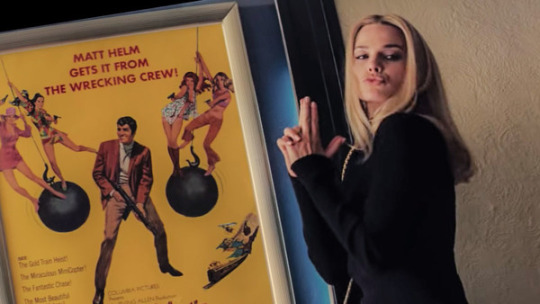
I never thought the day would come where my favorite movie of the year would actually be made after the 1970s, let alone by Quentin Tarantino. Then again, this movie is all about the end of Old Hollywood as well as a big love letter to the 1960s, so maybe it’s not that shocking a state of affairs. I adored this movie, the level of detail, the laidback yet elegaic vibe, the comedy and the relationships between all the characters. It was one of those movies where I loved even the scenes where nothing seems to be happening at all-- I mean, who knew Brad Pitt feeding his dog and watching TV could be entertaining?? But it is and I can't wait to see this one again!
INTENTIONS OF MURDER (DIR. SHOHEI IMAMURA, 1964)
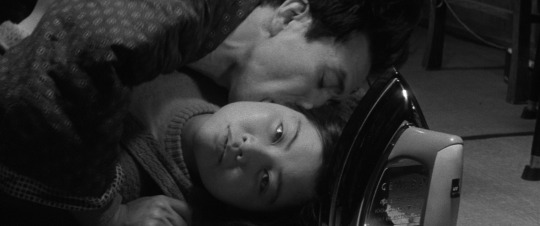
Intentions of Murder has an insane premise, one that runs the risk of being tasteless: a housewife in a miserable, exploitative marriage is raped by a sickly burglar during a home invasion. Even worse, she can’t shake him, as he’s suddenly infatuated and wants her to run away with him to the city. And weirder still: her current existence is so miserable that she’s TEMPTED. While abuse and rape are grim subjects for any story, Intentions is actually about a woman coming into her own and finally standing strong against all these men trying to use her. It’s a weird blend of drama and dark comedy, a truly savage satire on patriarchy and class-snobbery.
JOKER (DIR. TODD PHILLIPS, 2019)
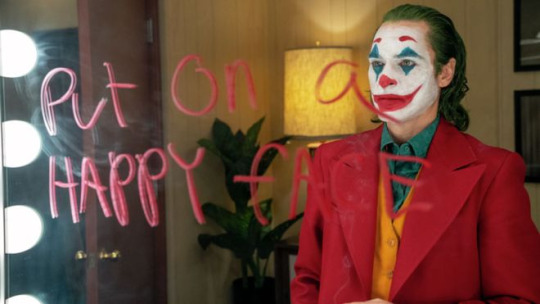
I went into this movie expecting to think it was overhyped and when I first left the theater, I was all ready to say “it’s good but not THAT good.” But it ended up haunting me for weeks afterward, and I found myself thinking about how everything just tied up so well together, from the grotty urban hellscape which serves as the setting to Phoenix’s brilliant performance. It reminded me a lot of A Clockwork Orange in how intimate it lets you get to this violent man while never pretending he is someone to be glamorized or imitated.
SIMON (DIR. MARSHALL BRICKMAN, 1980)
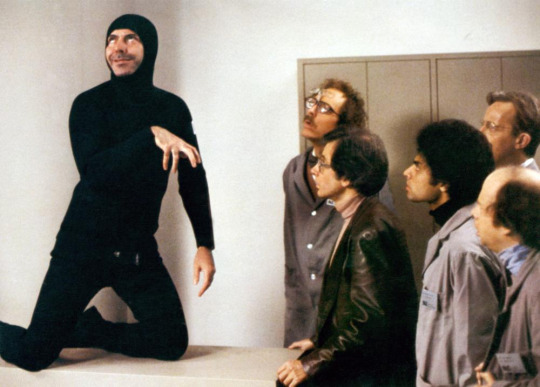
How do I even describe Simon? Alan Arkin is brainwashed by a group of overpaid intellectuals into believing he is descended from an alien toaster. Then he gets a messiah complex and starts gathering disciples as he rails against television, condiment packets, and muzak. It’s a little uneven at times, sure, but the satire is really inspired. The whole thing is like a combination of Mel Brooks, Stanley Kubrick, and Woody Allen’s styles, and it is quite hilarious for those who thrive on cult oddities.
PEEPING TOM (DIR. MICHAEL POWELL, 1960)
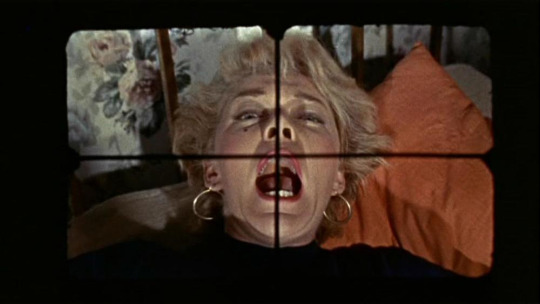
Though it came out the same year as Hitchcock’s Psycho and has been nearly as influential for horror cinema, Peeping Tom remains underseen by everyone save for film theorists. And what a shame that is, because this movie is more frightening than Psycho. Sure, that may be because Psycho is so predominant in popular culture and just so influential that it no longer has the same shock value, but there’s something about Peeping Tom that gets under my skin, something sad, even disgusting. I felt dirty after watching it-- and this is 2019!
MIDNIGHT MARY (DIR. WILLIAM WELLMAN, 1933)
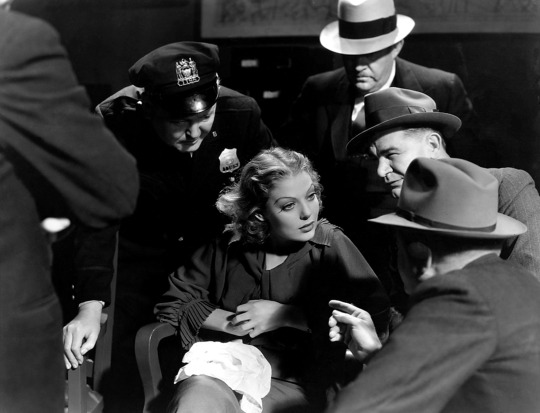
Loretta Young got one of her juiciest roles in this pre-code crime drama. Her Mary Martin is more than just a good girl forced into criminal circles-- she’s a complicated creature, compassionate and desperate and lonely and bitter and sensual all at once. This movie is a fast-paced, beautifully filmed ride, cloaked in that Depression-era cynicism that makes pre-code Hollywood of such interest to movie geeks the world over.
WILD BOYS OF THE ROAD (DIR. WILLIAM WELLMAN, 1933)
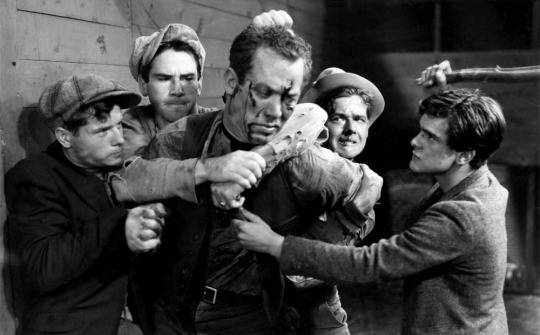
Wild Boys of the Road is a quintessential Depression-era movie, relentless in its bleakness and rage. That the main characters are all starving kids only looking for work makes their struggles all the harder to watch. William Wellman is quickly becoming one of my favorite directors: his gritty style and compact storytelling are just perfect for a ripped-from-the-headlines drama such as this. And the “happy” ending has one little moment that just knocks any smile you have right off your mug. Absolutely see this.
THE RUSSIANS ARE COMING, THE RUSSIANS ARE COMING (DIR. NORMAN JEWISON, 1966)
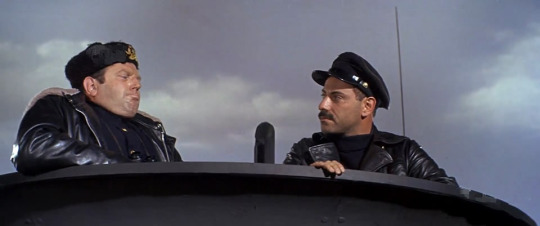
Sometimes, when you watch a movie only because a favorite actor is in it, you get subjected to pure trash like Free and Easy (oh, the things I do for Buster Keaton). Other times, you get cute gems like The Russians are Coming, The Russians are Coming, which, as you probably guessed, I mainly sought out for Alan Arkin. But the whole movie is hilarious, the best kind of farce comedy, populated by enjoyable characters and a sweet-tempered humanism that grounds the wackiness. While a little overlong, this movie is quite underrated-- and sadly, its satire of American xenophobia and Cold War panic is not as dated as we would like to believe.
ALL THE PRESIDENT’S MEN (DIR. ALAN J. PAKULA, 1976)
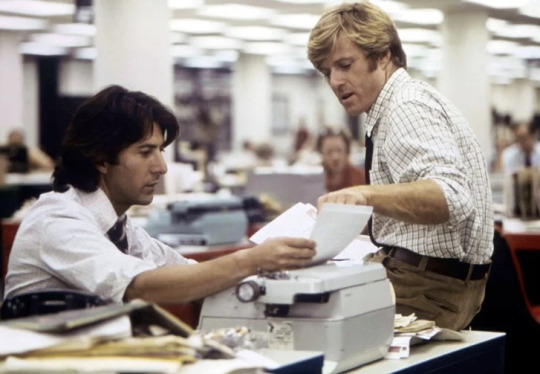
Who knew a political thriller where most people know the twist could be so intense and riveting? It’s about as nonsensical as feeling suspense when you watch a movie about the Titanic and hope the boat won’t sink-- but damn, it’s magical. All the President’s Men is real white-knuckle stuff, with Robert Redford and Dustin Hoffman projecting both youthful excitement and deep panic as they proceed with their investigation. It scarcely seems to have aged at all.
WHISPER OF THE HEART (DIR. YOSHIFUMI KONDOU, 1995)
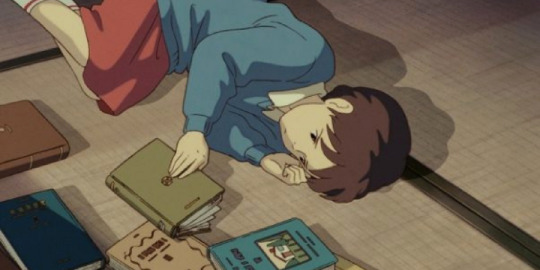
There’s a scene near the end of Whisper of the Heart where the protagonist Shizuku shows the finished first draft of her fantasy novel to her first reader, the grandpa of one of her schoolmates. She weeps because it isn’t the perfect image she had in her head, despite how hard she worked on it, but the old man tells her that it takes polishing and discipline to make the work come to its full potential. Few movies about artists are so honest about how hard it can be, how unsupportive others can be in their demand that everyone be “practical.” As a writer who struggles to create and constantly doubts herself, this movie spoke strongly to me. I recommend it to any creative person.
THE PHANTOM OF THE PARADISE (DIR. BRIAN DE PALMA, 1976)
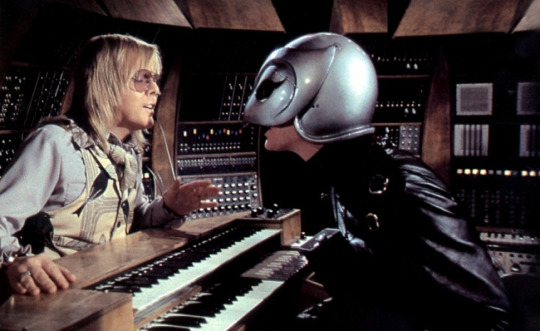
I’d been wanting to see this movie since my high school phan days. Holy crap, is it WEIRDER than I could have ever imagined, a true camp masterpiece. I’m shocked it was never tuned into a stage show actually, but then again, we would miss those trippy camera angles and we wouldn’t have Paul Williams as one of the greatest villains of all time.
DUEL (DIR. STEVEN SPIELBERG, 1971)
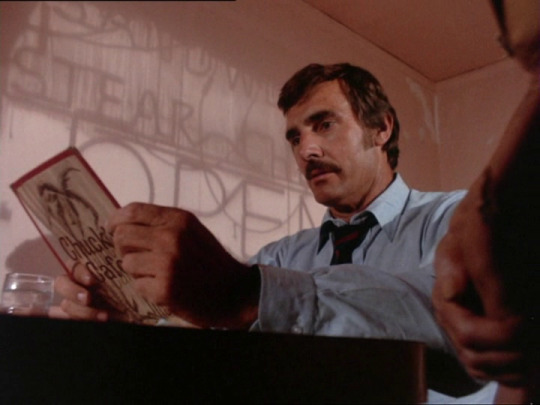
When people talk about the best movies made in the “Hitchcock without Hitchcock directing” tradition, why is Duel so seldom mentioned? The scene in the cafe, packed with paranoid tension and tense camerawork, alone should qualify it. Duel is most known as the movie which put the young Steven Spielberg on the map. It’s quite different from his later work, grittier and less whimsical for sure. Even the ending seems almost nihilistic, depending on how you view it. But damn, if it isn’t fine filmmaking.
CAROL (DIR. TODD HAYNES, 2015)
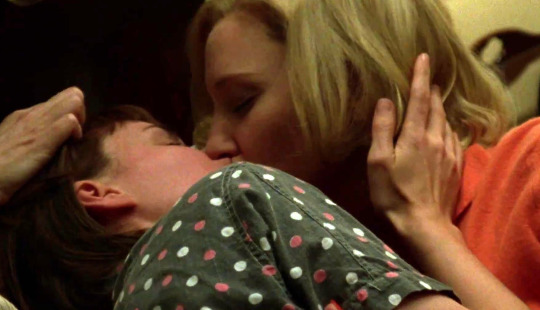
This gorgeous throwback to Douglas Sirk melodramas is also one of the best romantic movies I’ve seen in a while. Cate Blanchett and Rooney Mara have the sweetest, tenderest chemistry-- it was like seeing Lauren Bacall and Audrey Hepburn as love interests in a film. Unlike Sirk, there is little in the way of ripe melodrama here-- everything is underplayed, aching, mature. And I can say this is an adaptation that is better than the source book: it just feels so much warmer.
12 ANGRY MEN (DIR. SIDNEY LUMET, 1957
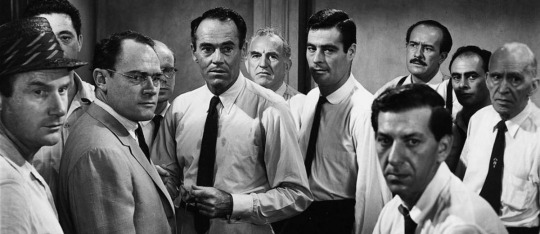
All I can say is that this was every bit equal to the hype. Common movie wisdom says people sitting and talking in a room is going to be boring on film, but movies like 12 Angry Men prove this is not so when you’ve got an excellently tense atmosphere, an inspired script, and a stable of fine actors to work with. Like The Russians are Coming, the Russians are Coming, this movie has not significantly aged-- much to society’s discredit.
A STAR IS BORN (DIR. GEORGE CUKOR, 1954)
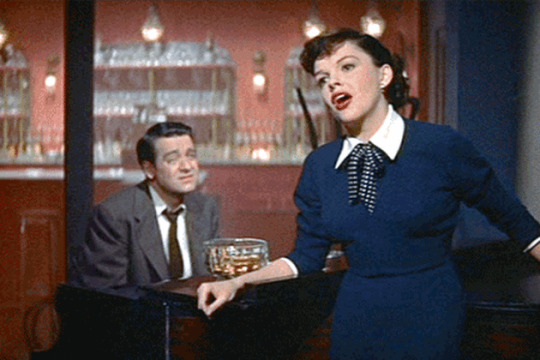
Another movie I went into not expecting to love as much as I did. When movies from the 20s or 30s tended to get remakes in the 1950s, I always find them too garish and big, victims of glossy Cinemascope and overlong runtimes. Compared to the lean 1937 classic original, I expected sheer indulgence from this three-hour remake. Instead, I got my heart torn out all over again-- the longer runtime is used well, fleshing out the characters to a greater degree. Judy Garland and James Mason both give what might be the best efforts of their respective careers, and the satire of the celebrity machine remains as relevant and scathing as ever.
BLANCANIEVES (DIR. PABLO BERGER, 2012)
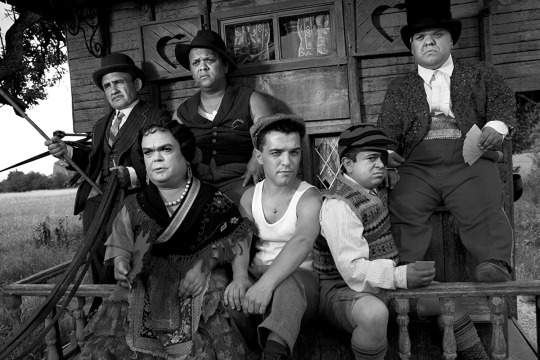
Oh, it feels like this movie was made for me specifically. It’s shot in gorgeous, expressionistic black-and-white. It’s set in the 1920s. It’s a clever adaptation of a classic fairy tale. It’s as funny and charming as it is bittersweet and macabre. Instead of more superhero movies, can we get more neo-silent movies like this? PLEASE?
THE FAVOURITE (DIR. YORGOS LANTHIMOS, 2018)
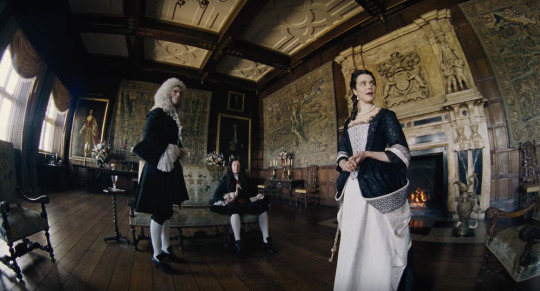
I’ve heard The Favourite described as a “bitchy lesbian Shakespeare play,” but this description, while a little true in terms of general tone, does not get to the heart of what makes this film brilliant. More than love or sex, this movie is about power-- particularly the corrupting influence of power. And it corrupts not only morals but love itself. Innocents become Machiavellian schemers. Lovers become sadomasochistic enemies. Good intentions turn to poison. This certainly isn’t a happy movie, but it is moving and, strangely enough, also hilarious. I was reminded of the chilly, satirical world of Kubrick’s Barry Lyndon more than once-- and for me, that is not a bad movie to be reminded of.
ON THE WATERFRONT (DIR. ELIA KAZAN, 1954)
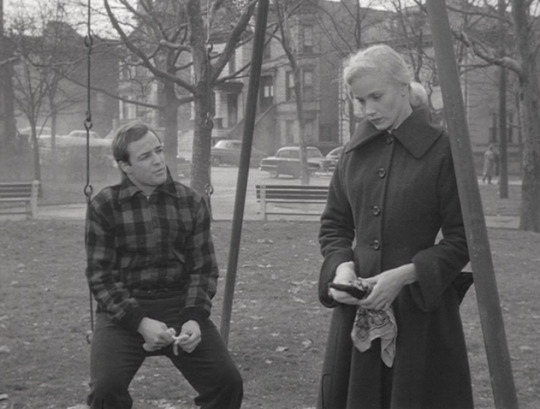
Another classic that’s been on my list forever that I was delighted to find worthy of its reputation. It’s a classic tale of redemption and social justice, perfectly acted and shot. While I still prefer A Streetcar Named Desire as far as Kazan is concerned, this might be a better movie in the objective sense. Actually, more than even Brando, Karl Malden is the acting highlight for me-- he plays a priest torn between staying silent or truly speaking for the Gospel by demanding justice for the poor parish he serves. Just brilliant work.
KLUTE (DIR. ALAN J. PAKULA, 1971)
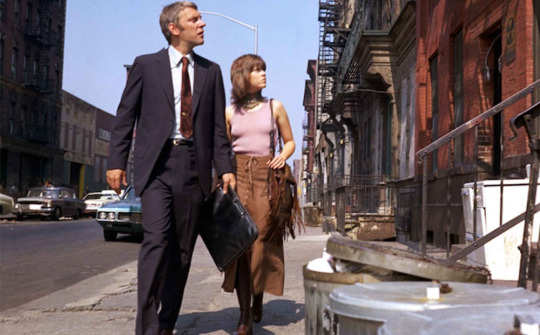
A perfect thriller, just about, and a great example of the “NYC is hell on earth” subgenre of the 1960s and 1970s. Jane Fonda is a revelation: she feels so real, not at all like a starlet trying to seem normal if you know what I mean.
KISS KISS BANG BANG (DIR. SHANE BLACK, 2005)
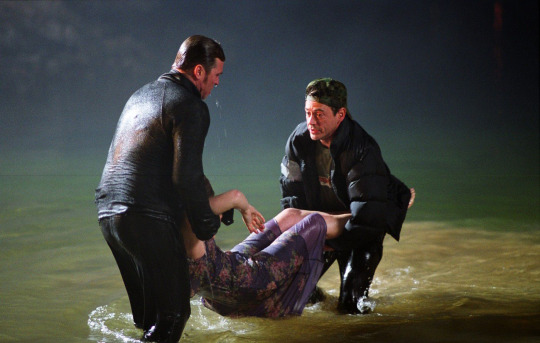
As far as subversive noir goes, this is the most entertaining. I would put it up there with The Big Lebowski as far as goofy takes on Raymond Chandler are concerned-- I don’t even really know what to make of it, but I laughed my ass off anytime I wasn’t going “WHAT???”
What were your favorite film discoveries in 2019?
#thoughts#peeping tom#simon 1980#kiss kiss bang bang#intentions of murder#once upon a time in hollywood#joker#a star is born#blancanieves#the russians are coming the russians are coming#all the president's men#whisper of the heart#carol#the favourite#12 angry men#klute#the phantom of the paradise#on the waterfront#wild boys of the road#midnight mary#duel
151 notes
·
View notes
Text
Book Review
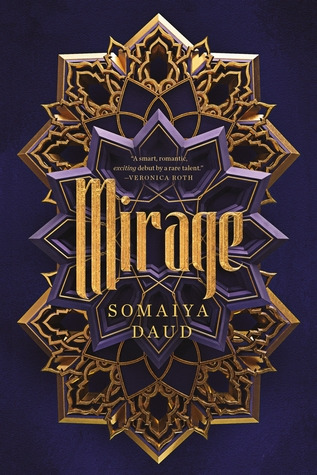
Mirage. By Somaiya Daud. New York: Flatiron Books, 2018.
Rating: 3.5/5 stars
Genre: YA sci fi/fantasy
Part of a Series? Yes, Mirage #1
Summary: In a star system dominated by the brutal Vathek empire, eighteen-year-old Amani is a dreamer. She dreams of what life was like before the occupation; she dreams of writing poetry like the old-world poems she adores; she dreams of receiving a sign from Dihya that one day, she, too, will have adventure, and travel beyond her isolated moon.
But when adventure comes for Amani, it is not what she expects: she is kidnapped by the regime and taken in secret to the royal palace, where she discovers that she is nearly identical to the cruel half-Vathek Princess Maram. The princess is so hated by her conquered people that she requires a body double, someone to appear in public as Maram, ready to die in her place.
As Amani is forced into her new role, she can’t help but enjoy the palace’s beauty—and her time with the princess’ fiancé, Idris. But the glitter of the royal court belies a world of violence and fear. If Amani ever wishes to see her family again, she must play the princess to perfection...because one wrong move could lead to her death.
***Full review under the cut.***
Content Warnings: violence, blood, political oppression, torture
Overview: As far as debuts go, this is one of the stronger ones I’ve read in some time. While the blurb promises a thrilling saga about survival, Mirage is focused less on characters dodging assassination attempts and more on holding on to one’s identity in the face of cultural suppression. I very much enjoyed Daud’s prose and her way of communicating emotion, which forged meaningful connections between characters and overcame what qualms I had about plot. While I talk about those qualms below, I do think that Mirage is a thoughtful book, and I am looking forward to the next installment in the series.
Writing: Daud’s prose is very descriptive and flows nicely without straying into purple territory. I wouldn’t call it “poetic,” because Daud doesn’t burden the reader with metaphor or lush descriptions of her world, but she does provide enough vivid detail to give the reader a clear picture of what’s going on, and then lets the rhythm and mood sweep the reader away. For example, Daud might leave a description of a palace as having “geometric designs” or a qaftan as “grey with red detailing” but focus more attention on how characters are feeling or interacting with each other.
Daud also has a talent for setting a good pace. While reading, I was worried that we were going to be subject to a lengthy “training session” in which Amani learns the ins and outs of court life, and while we do get some of that, it doesn’t go on for pages and pages. The training isn’t important, and Daud knows that. She describes just enough for the reader to get the idea of what kinds of things Amani has to learn and moves on. She also doesn’t linger in scenes that don’t need it, so we aren’t reading pages and pages of, say, Amani at a party - we get just enough to see Amani accomplish her goal before we’re on to the next thing. It was refreshing and kept the plot moving.
Plot: The premise of this novel is that Amani, an 18-year-old woman living under an oppressive regime, is taken from her home and forced to serve as a body double to Maram, the princess and heir to her oppressor’s empire. Amani’s people inhabit a planet called Andala and its moons - Amani herself lives on a moon called Cadiz - and are ruled over by the Vath, who have partially occupied, partially colonized the area. Though the Vath have a firm grip on power and have suppressed much of Kushaila culture (the Kushaila being one of the cultural/ethnic groups on Andala), rebellion still lingers in various pockets around the star system, threatening the life of Maram, who has made herself despised by the Andalaans through her cruelty.
The plot isn’t so much about Amani encountering life-threatening situations (by posing as Maram) as it is Amani struggling to hang on to her cultural identity. She becomes every bit the Vath princess, but finds comfort in her native language, her religion (or spirituality, or folklore - I’m not sure how to describe it), poetry, culturally-significant tattoos, and so on. As a result, this book is a wonderful exploration of how survival and preservation can be act of rebellion, which Amani herself thinks about this often. The sense is enhanced when we consider that Maram, the princess she is tasked to protect, is half Vath, half Kushaila, and struggles with accepting her Kushaila heritage, while Idris, Maram’s fiance and one of the few living members of a major Kushaila house, longs to connect to his native culture after living under Vath rule for so long.
Despite loving the message about cultural identity and survival, I do with Amani’s body doubling duties had been presented as a bit more risky than they were. The first few times Amani poses as Maram, there seems to be little threat to either Maram’s or Amani’s lives. Amani (as Maram) goes to a couple parties or visits Maram’s relatives or sits in on a political meeting - nothing where an assassination attempt seems to be a real possibility. The only time I got the sense that body doubling was necessary was towards the end, when more public appearances carried more potential for disruption. While I don’t think this book needed more threats of violence or “action adventure” to be considered “good,” I do think more risk could have enhanced the message about survival and sisterhood (which comes to fruition later).
Eventually, Amani does involve herself in riskier scenarios when she agrees to act as a spy, feeding information to the resistance while becoming increasingly more sympathetic towards Maram. While I liked that Amani got more to do, Amani’s efforts at playing politics seemed sloppy. While posing as Maram, she advises her father’s war council on which cities to bomb, which could have been a good subversion (to direct attention away from certain areas), but she advises them to bomb a culturally significant region of the planet and then acts like she had no choice. Moreover, Amani didn’t seem to be enthusiastic about the rebellion; she does her part, but it’s not necessarily a driving force in the decisions she makes. I put this down to her evolving feelings towards Maram, but still, I would have liked to see her be more passionate about the cause so that the conflict between supporting the rebels and supporting a friend is more pronounced.
Characters: Amani, our narrator and protagonist, is easy to connect with because she voices her emotions so much. The reader is always aware of how Amani is feeling, when she’s sad or lonely, when she’s finding comfort, when she’s connecting to others or to her poetry. Being privy to these emotions helped overcome moments when Amani is relatively passive. Throughout much of the book, Amani is obligated to do as she’s told, act as she’s expected, etc. which makes her seem like a mere pawn and just trying to survive the day. Of course, preserving her cultural identity is active, but I think even these moments could have been put into Amani’s hands a bit more. I also think
Maram, the princess for whom Amani serves a body double, has a very satisfying arc. She starts out cruel and arrogant, mistrusting everyone around her and doing her best to assert that she’s Vath, but over time, the facade begins to break down, and she becomes more sympathetic. I very much enjoyed how her relationship with Amani evolved, and her crisis of cultural identity complimented Amani’s story nicely.
Idris, Maram’s fiance and Amani’s love interest, is compelling in that he embodies a different facet of cultural suppression and identity crisis than Maram or Amani. He was only 10 when his family was wiped out for first rebelling, then surrendering to the Vath, and has primarily grown up in Vath courts ever since. He is engaged to Maram in the attempt to appease the Andalaans, making Vath rule more palatable if the heir to the empire is half-Kushaila and is married to a Kushaila. Idris remembers almost none of his native language, nor does he recognize the cultural significance of certain Kushaila things (like tattoos, etc.). His connection to Amani, then, is partially a connection with his native culture, and he learns more and more about where he came from by talking to her. While I enjoyed the drama inherent in his romance with Amani (how does one overcome the obstacle of being engaged to the princess but falling for her body double?), I did wish more was done to show a connection between them on a personal level. Idris seems to be in love with Amani primarily because of what she can teach him about Kushaila culture; most of the intimacy between them springs from discussions about Idris’ past or his lack of knowledge, with Amani filling in the blanks. Granted, there is a moment when Idris expresses admiration for Amani’s bravery, but I thought it was overshadowed by his draw to her as a representation of what he lost.
Other: The worldbuilding in this story was fairly compelling, combining the realities of cultural suppression with a unique science fiction setting that drew on Middle Eastern/Arabic/Islamic (I’m not sure which, specifically) aesthetics. I liked how the richness of Kushaila culture contrasted with the minimalism and austerity of the Vath because it reminded me of discussions about aesthetics and class or aesthetics and power - the “clean,” conservative tastes of the ruling class are in part an exercise in suppression and conformity, so I thought that worked well in the political environment Daud had created. I do think, however, that there were times when Daud would introduce something and not make full use of it. Maram, for example, has a large bird of prey called a roc, which does Maram’s bidding - but it only shows up once. There are droids roaming around, mostly in combat or violent situations, but I frequently forgot that they existed because they are almost never integral to the scene. I hope that the worldbuilding will continue to grow in subsequent installments in this series, as I really liked what I read in Mirage, but just wanted a bit more.
Recommendations: I would recommend this book if you’re interested in science fiction and fantasy, space operas, questions of cultural identity, poetry, and growing rebellions.
4 notes
·
View notes
Text
Cool Games I Finished In 2019 (In No Real Order)
We’re here. The end of the decade. 2019 was a weird, turbulent year for me. Despite my cross-country move already being a year behind me somehow, nothing’s really settled yet. Living situation is still weird, still separated from most of my belongings, I left my full-time QA job for a contractor position at a mobile game advertising company that may or may not convert into a full-time position... everything about what’s going on with me still just feels like I’m completely winging it, and while that’s not a position I’m really comfortable being in for such an extended amount of time, everything seems to be working out okay enough despite it. All this is probably why I spent most of my time playing the shit out of a handful of games rather than playing a bunch of different games this year! Needed some sort of stability. Also when I did manage to pull myself away from the timesink games and play something else, a lot of them ranged from “okay” to “real bad”. But I still managed to play just enough stuff that I liked to where I can put out yet another one of these. Here’s a bunch of cool games I experienced for the first time in 2019.

Phantasy Star Online: Blue Burst (PC, 2005)
I haven’t bothered to do two thirds of the story quests yet and have barely touched any Episode 4 content so this game technically doesn’t count for this list, but if I left it off I would be neglecting to mention an extremely large portion of my video game playing time this year.
I fell back into PSO preeeettty hard this year after the surprise announcement of Phantasy Star Online 2 finally coming to the US. Guess what: game still rules. It feels stiff to play and it’s obviously far less expansive than it seemed back in 2000, but the core of Phantasy Star Online is still as fun as it ever was and the aesthetics are still entirely my shit. I love everything about the way this game looks and sounds, I love stumbling on a weird new weapon, I love participating in the custom seasonal events the server I’m on runs, and I love how oddly relaxing the experience of playing this game and taking it all in is.
I will probably continue to play Phantasy Star Online into 2020. I will probably still dip back into it after PSO2 US servers finally launch. If I know you and you want to join my Discord server for PSO get at me. PSO forever.

Cookie’s Bustle (PC, 1999)
You ever play a game that just speaks to you? Even through a language barrier? A game so incredibly out there and bizarre in the exact way you love that you can’t help but adore it despite barely understanding it? Holy moly did I ever find that game.
I learned about Cookie’s Bustle through a news story last year about some rare games leaking from a Japanese collector’s stash. Didn’t manage to get it to run back then, but my off and on attempts to get it working finally paid off in March of this year and I’m so glad I kept trying. I knew nothing of this game other than it had a weird name and was about a bear doing sports, and it turned out to be a fully voice-acted and mostly unsubtitled adventure game starring Cookie Blair, a 5 year old girl from New Jersey who sees herself as a teddy bear and has traveled to Bombo World, an island nation once visited by aliens and currently in the middle of a civil war, to participate in the Bombo Sports Tournament.
Dead level, I probably shouldn’t have been able to genuinely love Cookie’s Bustle as much as I did. The only context I had for what was happening and what I was supposed to do was provided by a 20-year-old Google translated walkthrough with broken images, the game’s slightly higher than usual reliance on English loan words, and 30-ish years of video games and anime allowing me to halfway pick up on a handful of Japanese words. However, Cookie’s Bustle is dripping with an undeniable and off-beat charm that genuinely transcends language. Even if you can’t understand the words and specifics, you can understand the basic plot, characterizations, and emotions they’re going for.
Cookie’s Bustle manages to both be completely off-the-wall bizarre and feel totally genuine and heartfelt at the same time, a balance very few games manage to successfully hit but many of my favorites do. One could say that’s why it seems to have resonated with a decent amount of other people this year, too. Games rarely make me feel sad that they’re over. but when they do that’s how I know they’re one of the good ones. Seriously, go look up a longplay or stream of Cookie’s Bustle if you (understandably) don’t want to go through the hassle of setting it up and figuring out how to play it, it’s impossible not to love.

Devil May Cry 5 (PlayStation 4, 2019)
Here’s something crazy to think about: Devil May Cry 4 came out 11 years ago. Aside from being a potent reminder that time is moving too fast and we’re all going to die soon, that means that there hasn’t been a DMC for over a decade. Devil May Cry 5 does not bare this fact even a little bit. Not only did they pick up right where they left off and manage to make another Devil May Cry game without missing a beat, they made arguably the best Devil May Cry game.
I mean I still like the story and single-character focus of DMC3 the best, but DMC5 is the best playing game in the series without a doubt. Nero finally feels like he has a complete and complex toolset, Dante is the most mechanically dense and fun to play he’s ever been, and they even added a new guy that’s... neat to play as, until you start trying to S-rank the harder difficulties. Then he’s kind of annoying to play as. But it’s still cool that they tried something totally different and mostly got it to work!
They also did something very stupid that I love and used this game as an excuse to make literally every single piece of Devil May Cry media canon. Like, characters exclusively from the anime and the books show up and act like they’re someone you already know and love? And they go out of their way to explain the most esoteric lore shit possible?? And despite it all they still intentionally give DMC2 as short a shrift as they can??? It’s so dumb, it rules. It’s just one of the many things about the game that show that even with so long of a gap between entries, no love for the series was lost by the people that make it.
I don’t think the suits at Capcom expected this game to hit as hard as it did though, because despite there being clear areas where the game could be expanded on with DLC there still hasn’t been anything announced. I hope they’re maybe saving it for some sort of DMC3-esque special edition, or maybe just already working on DMC6, because even after getting all S-ranks I still wanted to play more. The game’s just that damn good.

Hypnospace Outlaw (PC, 2019)
I expected very little from Hypnospace Outlaw. I backed the game on Kickstarter solely because it looked cool and I thought a game about fake GeoCities was neat, and then I immediately forgot about it until it released. Admittedly my lack of expectations stemmed mostly from the fact that it’s kind of hard to set expectations for a game you never really thought too hard about, but even in the brief period of time where I considered it enough to give it money, I never expected it to be much more than a pretty-looking 101 Great GeoCities Jokez delivery vehicle. Boy was I wrong. I mean, it is incredibly good at that, but Hypnospace Outlaw is so much more than a funny period piece.
The basic premise is that you’re in alternate universe 1999 and have just become a community moderator for an Internet service provider that allows people to connect to the Internet while they sleep. You’re tasked with browsing the game’s weird fake Internet and issuing demerits to users who violate the five basic Hypnospace rules, but it quickly evolves into something way bigger. Hypnospace Outlaw’s greatest strength is its exceptional ability at weaving together subtle world building, small and engaging character arcs, esoteric microjokes, and a genuine sense of mystery and discovery into an incredibly cohesive and engaging package. It’s as much a game about the people that use and run its weird fake Internet as it is about that weird fake Internet itself. And a lot of the problems both face echo the problems we face with our real world Internet today.
When I was mapping out writing this article like a month or two ago I was prepared to go on about how at its core, Hypnospace Outlaw is an incredibly poignant story about how uncaring tech corporations actively harm their users and always have, but then a couple of days ago I read Colin Spacetwinks’ game of the year list and his #1 entry put most everything I would have said about that topic down in a way more eloquent and well-written way than I ever could have. And then I remembered that Friend Of The Site Heidi Kemps covered some of the same angle but from the perspective of the early Internet in an article earlier this year, again way better than I could have. So I highly recommend you read those when you’re done here. What I wanna bring up instead is just how effortlessly surprising and interconnected a lot of stuff in Hypnospace feels, using a mildly spoiler-ish late game example.
Two of the first “zones” you’re allowed to moderate when you start Hypnospace Outlaw are Teentopia and Goodtime Valley, which are essentially alternate universe Yahooligans and a little slice of Hypnospace just for Boomers respectively. On Teentopia you’ll see a bunch of kids that are wild for Squisherz, Hypnospace’s alternate universe version of Pokémon, and over in Goodtime Valley you’ll see (much like there was back in real world 1999) a few pages made by religious fundamentalists convinced that everything the kids like these days is the work of Satan. This of course includes Squisherz, and you can find a page by one organization full of crackpot conspiracy theories with flimsy evidence that TOTALLY DEFINITELY backs up their claim. Squisherz contains a wolf, which the Bible warns about many times! This giraffe monster CLEARLY has a pentagram in its design!! And the eye of this snake-like Squisherz is the eye of Horus, an Egyptian occult symbol and NEED I REMIND YOU that Lucifer took the form of a snake in the Garden of Eden!!! It is very clear what this page is goofing on and throughout the course of the game it doesn’t get updated at all, so it’s very easy to laugh at it and forget about it.
Very late into the game, you get an optional sidequest. Adrian Merchant, one of the CEOs of Merchantsoft, the company that created Hypnospace, was found out to have logged traffic indicating he was a frequent visitor of a website called Children of HORUS, and a call is put out to investigate what that even is. You can easily find the website, but it asks you for a password if you click the Enter button. Adrian Merchant is consistently portrayed throughout the game as a complete idiot, and the solution to this puzzle has you capitalize on that. Another early game objective ended up with you finding a list of cracked passwords, and one of those passwords happens to be for the instant messenger account of Adrian Merchant. If you can remember that he was even in that text file from forever ago, and then put two and two together that of COURSE that dumbass would use the same password for everything, you just punch in his messenger password and you’re granted access to the Children of HORUS page.
It turns out that HORUS is an acronym that stands for Hiding Occult References in Utmost Secrecy, and the page itself is a basic leaderboard with a list of names and two numbered columns reading “Hidden” and “Found”. In that list of names you’ll find A. Merchant, along with the names of various other CEOs and celebrities you might have read about elsewhere in Hypnospace. One of the other names on this list is F. Kazuma, the CEO of Monarch, creators of Squisherz. The funny conspiracy theory website from the beginning of the game that you most likely forgot about was, about this one specific thing, correct. There was an eye of Horus hidden on the snake from Squisherz. Not as any sort of Satanic plot, mind you, but only as part of some weird millionaire dickwaving contest. This dumb tiny revelation is not called out by the game at all and nothing comes of it, it’s just there for you to notice if you’ve been paying enough attention.
Hypnospace Outlaw is LITTERED with stuff like this. Weird small interconnected things you wouldn’t expect to be interconnected. Little dumb things you wouldn’t expect to have any sort of payoff but somehow do. And it’s also just as chock full of big things. Having all the pieces fall into place at once to where I was able to access Hypnospace’s equivalent of the dark web was the best sequence in a game this year for me, even beating out the outlandish shit in DMC5. Getting and solving the final case was a rush. Hypnospace Outlaw is full of incredible moments big and small. It’s genuinely engaging and affecting, which is so much more than I was expecting from a game that was pitched to me as “Funny GeoCities Cop”. It almost has no right being so good. But it is. Hell, even the music rules! I didnt even get into that! I don't have enough time or space to get into that now! The music is so goddamn good! I know I started these lists because I had no interest in ranking games, but every year I sort of jokingly-but-not-jokingly say “haha this game sure would be my number one if I did that!” for at least one game. It’s time to fully lean into it. I don’t gotta rank ‘em all, but I can pick a favorite. Hypnospace Outlaw is my favorite game of 2019 with a goddamn bullet.
These games were also cool, I just had less to say about them:
Etrian Odyssey (Nintendo DS, 2007): Man, this series just started out good, huh? I dabbled with the first two games in college when I got a DS flashcart but never really dug in until EO4, and the first game is enjoyable in just about every way the modern ones are. Definitely more barebones and punishing though.
Kero Blaster (PlayStation 4, 2017): This is a game by the creator of Cave Story that does not aim to be Cave Story, and that’s fine! A fun little shooter in its own right, though I do think the shooting in Cave Story felt a little better than it does here.
Space Invaders Extreme (Nintendo DS, 2008): I played the shit out of this game in college thanks to that flashcart I mentioned before, but I never finished a playthrough in full until this year for some reason. Still way stylish and way fun! I need to get a copy of the second one...
CROSSNIQ+ (Nintendo Switch, 2019): Incredibly chill puzzle game that can be as hard or easy as you want it to be. Almost uncanny in how well it emulates the style of late PS1/Dreamcast games.
Super Mario Maker 2 (Nintendo Switch, 2019): Mario Maker 2 is kind of weird for me. It’s a solid improvement in a lot of aspects, but a clear regression in a lot of others. Also the online multiplayer is the second least amount of fun I’ve had with a video game this year (Secret of Mana swooped in and stole the number one slot near the end). Still, I had a lot of fun with it and I’ll probably end up going back to it eventually.
Katamari Damacy Reroll (Nintendo Switch, 2018): The original Katamari Damacy is still every bit as fun and charming as it was upon its original release. This port is weirdly based on the Japanese version with the English text inserted, which means no English voice acting and Wanda Wanda only plays in the multiplayer mode. The Joycon sticks also aren’t the greatest for doing charge rolls. But none of these faults detract too much from the game. Bring on We Love Katamari Reroll!
Earth Defense Force 5 (PlayStation 4, 2018): Sandlot somehow keeps finding ways to make each new EDF bigger and explodier, and EDF5 is the biggest and explodiest yet. I think the mission design in 4.1 was more solid overall, but 5 feels the best to play and has the most fun tools. Also the dialogue is the most absurd its ever been, and the final boss goes for it way harder than the series ever has.
Pokémon Shield (Nintendo Switch, 2019): This game is honestly just okay, but leaving it off would again be neglecting a game I put a ton of time into this year. Pokémon Sword is fun in the way most Pokémon games usually are, and extremely half-baked in basically every other aspect. I’m still having a good time putting together teams and finding shinies and doing The Pokémon Thing regardless.
And that’s 2019 (and this decade) in the bag! I don’t know where anything’s going from here, but I’m going to ride it out as best as I can! I hope you do too! As always, thank you so much for getting to the bottom of all these words. I’m hoping to be in a more stable place mid-2020, and then I want to get back to all the things I haven’t had time to do. I want to get back to streaming, I want to write more dumb articles like The Best Babies, I want to do it all! I hope I will be able to do it all. Until then!
12 notes
·
View notes
Text
Ex Libris: Stories of Librarians, Libraries & Lore
Edited by Paula Guran
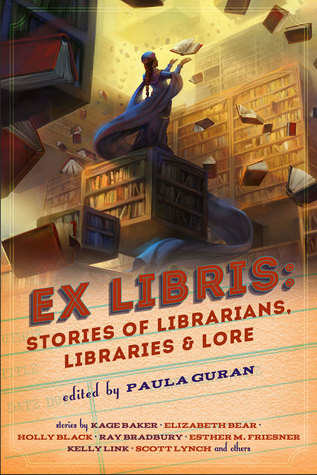
Twenty-three tales of fantasy and science fiction that contain libraries and librarians as well as the magic of books. An absolutely wonderful collection, only one disappointment. And that was more about style of writing than the premise of the story itself. 4 out of 5.
“In the House of the Seven Librarians” by Ellen Klages
When the old Carnegie library was closed and much of its newer content moved to a brand-new library across town, seven librarians remained behind, moving into the library to stay. Their lives are changed when a baby is left as payment for an overdue book. A suspension of disbelief leads to a strange yet satisfying read. 4.5 out of 5.
“The Books” by Kage Baker
The Show traveled around the badly decimated U.S., providing entertainment and trade. In one larger city, three kids explore, stumbling on a library. All of them are determined to take books back with them, but it might not be that easy. This was almost like a section of a longer story, one that I'd love to read. Very intense. Baker does a marvelous job with atmosphere. 3.5 out of 5.
“Death and the Librarian” by Esther M. Friesner
Death has come at last for Miss Louisa Foster. Yet even Death can be surprised. This one came close to tearing my heart out, slamming it on the floor, and stomping on it repeatedly. 5 out of 5.
“In Libres” by Elizabeth Bear
Despite her thesis being complete, Euclavia is directed to the Library Special Collections to read another source. Accompanied reluctantly by her centaur friend Bucephalus, they dare to visit the dangerous place. Definitely dangerous! There’s a chill tap-dancing along your spine, especially for those readers who have been deep in the bowels of huge, older libraries. 4 out of 5.
“The King of the Big Night Hours” by Richard Bowes
Memories and suicides in the library. I’m not certain how I feel about this one. The writing is exquisite, the plot is intriguing, but the emotions invoked are not comfortable. If that was the author’s intent, mission accomplished. 3.5 out of 5.
“Those Who Watch” by Ruthanna Emrys
The library marks Elaine on her third day of work. Already dealing with various health and emotional issues, she must find a way to adapt or leave. Unusual and intriguing. Definitely deserves further exploration. 3.5 out of 5.
“Special Collections” by Norman Partridge
He went to work at the library as suggested by his court-appointed therapist. He started taking Library Science classes as suggested by the college archivist where he met Daphne. But there are secrets, deadly secrets swirling around the library and the narrator. More horror than fantasy, not one of my favorites. Despite ticking off some loved trope boxes, I struggled to finish. 3 out of 5.
“Exchange” by Ray Bradbury
Working in the library for forty some years is getting to Miss Adams. Too many children, too many books, too much noise. Then a former patron arrives after hours looking for a final goodbye before shipping out. There is no finer writer of fantasy on this planet. Or maybe it is more accurate to call him a weaver of magic. 5 out of 5.
“Paper Cuts Scissors” by Holly Black
Justin struggles to find a way to rescue his girlfriend Linda from the book she put herself into after they had a fight. His best hope is Mr. Sandlin, a man who can bring characters out of books. Thanks to another, as well as Sandlin, Justin finds answers and a possible solution. An intriguing premise handled with a delicate touch. Lovely. 4 out of 5.
“Summer Reading” by Ken Liu
When mankind left Earth for the stars, the planet was turned into a museum overseen by robots. CN-344315 was the robot docent of the library. It had been five thousand years since he last had human visitors. The servers are gone, but CN-344315 had a tiny room filled with his favorite treasures: a selection of books protected behind an airtight glass. A visitor reminds CN-344315 of why books are important. Wow! I’ve come across Liu’s work in my SF magazines over the years and have always enjoyed his stories. I do believe this might be one of my favorites. Short, sweet, and wonderful. 5 out of 5.
“Magic for Beginners” by Kelly Link
I’m not certain how to explain what this story is about. There’s a TV series and the characters in this story watch the series yet are also an episode of the same series. Gave me a bloody headache. There was so much potential, but it twists around itself until I finally gave up trying to understand it as a bad deal and just slogged through. Weird beginning, no real ending. Just a mess. 2.8 out of 5.
“The Inheritance of Barnabas Wilcox” by Sarah Monette
Booth is surprised to hear from Barnabas Wilcox, a former classmate and bully. Wilcox needs someone to catalog his late uncle’s library. Booth senses something twisted at Hollyhill, the uncle’s estate. Creepy, horror of the emotions rather than blood and guts. In other words, my kind of horror tale. 4 out of 5.
“The Midbury Lake Incident” by Kristine Kathryn Rusch
When the Midbury Lake Public Library burned to the ground, librarian Mary Beth Wilkins was upset, not only because of the fire, but that she wasn’t notified. Grief would come later, once Mary Beth has left for a new life. Very nice, just enough backstory to intrigue the reader. I do wish there had been more. 3.5 out of 5.
“With Tales in Their Teeth, from the Mountain They Came” by A. C. Wise
After she loses her lover in the War, she goes to the Library on the Mountain, becoming an acolyte now named Alba. She stries to find solace in the quiet, but mostly struggles. Then she meets a novice named Eleuthere who hides secrets beneath his robes. Very magical, almost dreamlike. 4 out of 5.
“What Books Survive” by Tansy Rayner Roberts
When the Invaders came, every electronic device died immediately, even battery-run ones. Katie Scarlett Marsden was almost halfway through Wuthering Heights when her Kindle died. Once the town built a barricade, she was separated from the school library. Wanting more to read, Katie slips past the barricade one night, finding more than she expected. A very weird dystopian story, enthralling and filled with twists. 4.5 out of 5.
“The Librarian’s Dilemma” by E. Saxey
Jas was hired to bring libraries into the 21st Century. Saint Simon’s librarian Moira doesn’t mind the security measures he can provide, but she isn’t interested in sharing the contents of their Special Collection outside the library’s walls. I understand the dilemma in this story and, frankly, I’m not certain which side I would support in regards to the sharing of dangerous material. 4 out of 5.
“The Green Book” by Amal El-Mohtar
There is little that I can tell you about the story without spoiling it, so I’ll live it with that it is a story about a mysterious green book and its contents. I mostly liked it. I think. Yet it felt like it was more a rough sketch than a complete story. 3 out of 5.
“In the Stacks” by Scott Lynch
Magical student Laszlo Jazera discovers the dangers of the final assignment for Fifth Year, one he must pass to make it to Sixth Year. It seemed simple enough, return a book to the Living Library. The task will be more frightening and intense than he could ever have expected. There is a tragic sadness throughout this story, but the universe created is horrifyingly compelling. 4.5 out of 5.
“A Woman’s Best Friend” by Robert Reed
On Christmas Eve, Mary sees a stranger stumbling through the snowy streets of her town. George is confused and frightened, soaked from head to toe. Mary impulsively takes him back to her home in the library. A strange retelling of a classic Christmas film, a mixture of fantasy and science fiction. Interesting, a bit strange at the end. 3.5 out of 5.
“If on a Winter’s Night a Traveler” by Xia Jia
A lonely librarian discovers a book of poetry that might expand his world. There is magic about this tale that touches the reader’s soul. I loved how the people who wanted the poetry read and appreciated on its own merits, not for the possible backstory of the author. 4 out of 5.
“The Sigma Structure Symphony” by Gregory Benford
Ruth is one of many librarians mining for useful information in recordings from the SETI project. After the death of a fellow librarian, Ruth is asked to take over his task, mining the Sigma Structures. Math and music, language and love. Are they simply human-based? Weird. Confusing. Engrossing at the time yet left a sour aftertaste. 3 out of 5.
“The Fort Moxie Branch” by Jack McDevitt
Mr. Wickham, in the process of disposing of his privately published novel, is caught in a blackout. During that darkness, he sees a strange glow in a long empty house. I love the idea of this story. A fascinating premise from start to finish. 4 out of 5.
“The Last Librarian” by Edoardo Albert
Books, actual physical books, have been ignored in favor of uploaded versions or neural inputs. The librarian at the British Library finagles a way to direct traffic physically into the building. Unfortunately, it doesn’t go well. In today’s world, I fear this could happen. Maybe not now, but very soon. I was surprised that the narrator remained at the end. 4 out of 5.
#book review#Paula Guran#science fiction#fantasy#short story collection#Ellen Klages#Kage Baker#Esther M. Friesner#Elizabeth Bear#Richard Bowes#Ruthanna Emrys#Norman Partridge#Ray Bradbury#Holly Black#Ken Liu#Kelly Link#Sarah Monette#Kristine Kathryn Rusch#A. C. Wise#Tansy Rayner Roberts#E. Saxey#Amal El-Mohtar#Scott Lynch#Robert Reed#Xia Jia#Gregory Benford#Jack McDevitt#Edoardo Albert
8 notes
·
View notes
Text
The Caretaker - Doctor Who blog (More Like The Piss-taker)
(SPOILER WARNING: The following is an in-depth critical analysis. If you haven’t seen this episode yet, you may want to before reading this review)
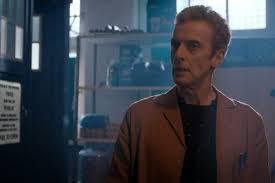
An episode co-written by a sexist moron and a transmisogynistic arsehole? What could possibly go wrong?
It’s present day Earth and the Doctor needs to go undercover and pretend he’s human in order to lure out and defeat an alien threat. No it’s okay. You haven’t stumbled onto my review of The Lodger by mistake. This is actually believe it or not a completely different episode. Seriously, is this the only idea Gareth Roberts has got? It wasn’t even very good the first time around. I might as well keep this review short because I’ve basically already talked about this. If you want to know what I think of the premise, read my review of The Lodger again.
It all feels so half-arsed this time around too. I mean The Lodger stopped being scary after about five minutes, but the idea had potential. This is just pathetic. The Skovox Blitzer. What a truly rubbish monster. It’s so generic and completely non-threatening, spouting silly catchphrases and possessing worse aim than a drunken Star Wars stormtrooper. The humour too is incredibly painful. Mind you, The Lodger wasn’t very funny neither. It took Eleven’s goofy eccentricities and magnified them to such unbearable levels of obnoxiousness that by the end I just wanted to hit him on the head with a chair. But in The Caretaker, the humour is actually worse because it makes the same mistake Robot Of Sherwood made. This type of humour just doesn’t suit the Twelfth Doctor at all. I admire Peter Capaldi as a performer and he does the best he can with what he’s been given, but he simply can’t do this kind of comedy. But it would be unfair to lay all the blame at Capaldi’s feet because I honestly can’t imagine anyone making these jokes work. The scene where Clara tries to convince Danny that his encounter with the Blitzer was part of a surprise play was just cringeworthy to sit through because nobody would ever talk like that in real life. And some of the jokes don’t even make sense. Why is the Doctor insistent that Danny is a PE teacher? What makes him think he can’t do Maths just because he’s a soldier?
Which brings me to the main problems with the episode. Once again this is yet another episode that focuses entirely on the Doctor, which is not only starting to become incredibly boring, they don’t even do it very well. Moffat and Roberts want to convey that the Doctor is a trustworthy leader who may need to rely on his companions sometimes for moral guidance, but always cares deeply about their welfare. How do they go about showing us? By having the characters just flat out telling us this. This is writing at its most amateurish. If you want to define a character, let them actually do stuff and then let the audience work it out for themselves. Show, don’t tell. And why do we even need an episode reiterating shit about the character we already bloody know? Here’s an idea. The episode is set in Coal Hill School. You know? The school his granddaughter went to? Maybe this would be a good opportunity to dwell on that. The Doctor hasn’t seen Susan in centuries. How does he feel about that? Has he ever thought about going back to the 22nd century and paying her a visit? (assuming she’s still alive). What about her teachers Ian and Barbara? Did they ever make it back? What happened to them? Oh but that would require some original thinking on Moffat and Roberts’ part and they’re clearly not fucking capable of that. It’s much easier to just rehash the same old ideas and use references to Who’s past as lazy fanservice rather than actually doing anything with them.
And why for fuck’s sake are we going down the love triangle route again? No doubt Moffat thinks the lack of romantic interest on the Doctor’s part puts a new spin on it, but it actually doesn’t. How is Twelve/Clara/Danny any different from Ten/Rose/Mickey or Eleven/Amy/Rory? (Don’t forget before this series aired, Moffat said this was going to represent a brave new direction for the show. What? Doing the exact same shit over and over again constitutes a brave new direction, does it? Fuck off!) This doesn’t work for three reasons. 1) We’ve done this many times before; 2) I don’t give a shit about Clara or Danny; and 3) the writing is fucking atrocious. Remind me, why does the Doctor hate Danny again? Because he’s a soldier? (and part time circus acrobat judging by the way he flips over the Blitzer). What is with Twelve’s one note hatred against soldiers? We’re back to the same problem we had in Into The Dalek. Yes the Doctor has always felt slightly uncomfortable around the military, and Nine and Ten’s anger toward soldiers and guns could at a push be justified by their PTSD after the events of the Time War, but Twelve doesn’t seem to have any justification for his extreme hatred toward them whatsoever. The two soldiers he’s met (Journey Blue and Danny Pink) have given him no reason to hate soldiers at all as far as I can see. He just hates soldiers because the script says he does, and that’s just not good enough.
But what angers me the most about this whole love triangle is the underlying sexism to it. (Brace yourselves @prettycanarynoir and @thealmightytwittytwat because this is probably the one and only time you’ll ever hear me defending Clara). When Clara has finished explaining to Danny all about the Doctor and the TARDIS and everything, the Doctor then angrily says that she needs to explain to him why she’s going out with a soldier (because all soldiers are inherently evil just because). I’m sorry, why the fuck does Clara need to justify who she’s dating to the Doctor? Who the fuck does he think he is? And it gets worse when it’s revealed that the reasons behind the Doctor’s mistrust of Danny is because he wants to make sure Danny is good enough for her, which just comes off as really patronising. Clara doesn’t need the Doctor to vet her boyfriends. I’m sure she’s fully capable of making her own decisions, thank you vey much. Not that this lets Danny off the hook. In fact in this episode Danny goes from being a gormless nobody that I couldn’t give a shit about to being quite possibly one of the most hateful figures I think I’ve ever comes across in New Who. The scene in the TARDIS where he effectively throws his toys out of the pram and starts mocking the Doctor for his soldier-ness really soured my views toward him as a character. The episode tries to present it as Danny making these deep observations about the Doctor, except he’s only just met the Doctor, so he can’t really judge, and he comes across as a spoilt little shit having a temper tantrum because he’s suddenly not the centre of Clara’s life anymore. And then there’s the scene at the end when Danny and Clara talk about her continuing to travel with the Doctor. Not only does he threaten to dump her if she doesn’t tell him every single aspect of her life, he then goes on to say this:
“If you don’t tell me the truth, I can’t help you. And I could never stand not being able to help you."
Um... who the fuck asked you to Danny boy?
It’s disturbing because Moffat and Roberts clearly don’t see this the same way I’d like to think most sensible people would. They think this shows two fiercely protective men looking out for the woman they care for, whereas in reality it looks more like two selfish arseholes trying to assert control over ‘their’ woman as though she’s their property rather than a person in her own right. It’s legitimately disgusting to watch, and the sad thing is I’m not even shocked by this. I mean what did you expect? Gareth Roberts has already displayed his sexist side in The Lodger with Craig Owens. A character presented as a romantic everyman, but who is actually a hideous embodiment of male entitlement who throws a hissy fit every time his girlfriend shows even the slightest bit of independence because her plans don’t coincide with what he wants. And we all know by now how much of a sexist twat Moffat is, despite his repeated claims to the contrary. Put them together and you create a misogynistic neutron bomb.
As you can probably tell, I don’t like this episode very much. It’s unoriginal, uninspired, boring as fuck, painfully unfunny, and the sexism is just gross, end of. Can it get any worse than this?...
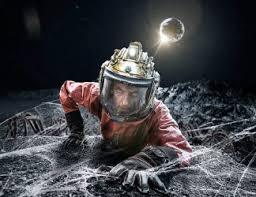
Yes. Yes it can.
#the caretaker#gareth roberts#steven moffat#doctor who#twelfth doctor#peter capaldi#clara oswald#jenna coleman#bbc#review#spoilers
15 notes
·
View notes